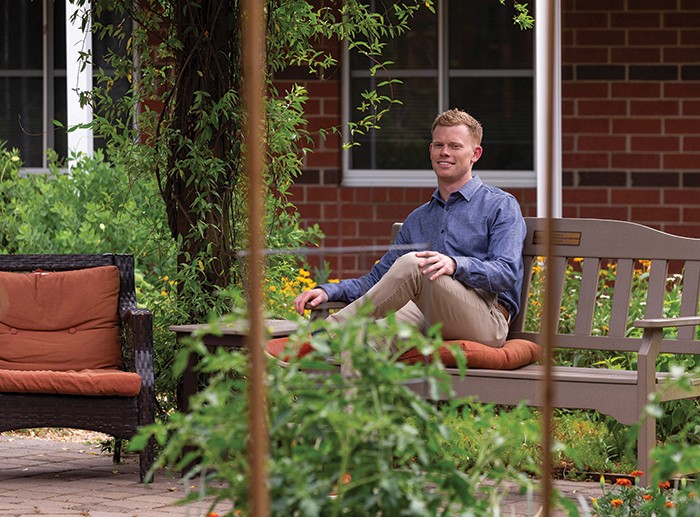Healing Transitions launched the final phase of its $16.75 million capital campaign with a virtual groundbreaking event on Thursday, March 25. The nonprofit seeks to expand access to recovery services for men and women in Wake County struggling with addiction.
“We celebrate this exciting moment in Healing Transitions’ 20-year history, and we look forward to serving the men and women in our community who will be able to pursue recovery as a result of this expansion,” said Chris Budnick, executive director of Healing Transitions.
Healing Transitions provides long-term recovery, overnight shelter, non-medical detox and family services at no cost to men and women across two separate campuses, seeing a combined average of over 300 people each night.
As part of the planned expansion, the men’s and women’s campuses will add an additional 200 beds (for a total of 500 beds at both campuses); expand recovery programming space with larger areas for classrooms, living, dining, and community; and renovate and expand the detox and shelter spaces. The overall expansion will improve the organization’s infrastructure to support all of its participants across both campuses.
Currently, Healing Transitions has raised 93 percent of its fundraising goal and is inviting the community to partner with them to “Be the Key” to recovery for more men and women by helping the organization raise the remaining 7 percent – or $1.25 million. Community partners in the “Recovery Can’t Wait” capital campaign include Wake County Government, the City of Raleigh, the A.J. Fletcher Foundation, Blue Cross Blue Shield, and the SECU Foundation.
“We are deeply honored to have the support of a wide variety of donors, community partners, and neighbors throughout Wake County, and we’re thankful to everyone who has been a part of this journey with us,” said Budnick.
More than 20 million Americans are battling addiction and in need of immediate help, and thousands of those men and women live in Wake County. Since opening its doors in 2001, Healing Transitions’ average daily census has increased a staggering 186 percent. In 2019, Healing Transitions served a record number of men and women, with nearly 2,700 individuals coming to its campuses in need of help. This pace continued into early 2020 until the global COVID-19 pandemic forced the organization to temporarily close its doors to new participants for the first time in its history.
For more information about the Recovery Can’t Wait campaign, please visit RecoveryCantWait.org.






